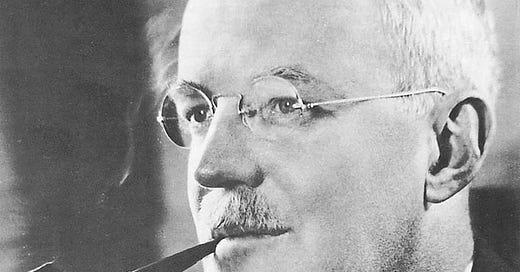Why Did a Future CIA Director Hide Evidence of the Holocaust During WWII?
Allen Dulles lack of interest over what the Nazis were doing to Jews in Europe is a puzzle historians are still trying to solve.
In the spring of 1943, Allen Dulles—the future director of the CIA—was working for the US government as a spy out of Switzerland when he agreed to meet Eduard Schulte, a German businessman who had stumbled on a dark secret the previous year: Jews were being systematically exterminated by Nazis in death camps across Europe.
In July of 1942, Schulte had gotten a glimpse of Auschwitz. Horrified by what he saw, the industrialist had smuggled his secret to Switzerland at great risk to his own life, where it was shared with the US State Department. Government officials dismissed Schulte’s firsthand account as “a wild rumor inspired by Jewish fears.”
Yet Schulte was later able to arrange a meeting in Zurich with Dulles, whom he had met 15 years earlier in New York.
In his 2015 book The Devil’s Chessboard, David Talbot explained “the fate of the Jewish people was still of great urgency to Schulte,” who in addition to feeling basic humanitarian compassion was also in love with a Jewish woman. Dulles, however, “expressed little interest in Schulte’s information about the Final Solution.”
Dulles’ apparent lack of interest over what the Nazis were doing to Jews was not an isolated occurrence.
Fritz Kolbe, a foreign service official in the German government who had smuggled documents to Dulles in Bern, experienced a similar reception in his meeting with Dulles.
In fact, throughout 1944, as Dulles received more and more cables about Jews being “taken to the Reich territory for work in the labor service” (a euphemism Nazis used for concentration camps), very few of the reports ever reached Washington, DC.
“[Few] of his more than three hundred communiques mentioned the killing of Jews—and none carried a sense of urgency about the Final Solution,” Talbot writes.
Talbot is not the only historian to note the oversight of the legendary spy.
“Why did Dulles choose not to emphasize the Holocaust in his reports to Washington,” asked World War II historian Neal H. Peterson, who served 10 years with the CIA Historian’s Office. “Whatever his reasoning, his reticence on this subject is among the most controversial and least understandable aspects of his performance in Bern.”
So what were Dulles’ reasons?
Talbot offers a couple possibilities, including the idea that Dulles was simply more interested in other things, such as “psychological warfare tricks…and other cloak-and-dagger antics.”
There’s also the possibility, as Talbot hints throughout his book, that Dulles may have been something of a Nazi sympathizer. While this is a loaded accusation, it should not be summarily dismissed. Dulles went out of his way, Talbot shows, to save German SS functionary and Hitler liaison Karl Wolff from facing a trial at Nuremberg after the war, despite Wolff’s involvement in the Final Solution. (Presumably, Wolff escaped trial for his prominent role in Operation Sunrise, which led to the surrender of German forces in Northern Italy.)
There might be something to these claims. But the primary reason, I think, is that the Final Solution complicated Dulles’ goal of rebuilding the German state after the war, which would serve (he hoped) as a bulwark against the rising threat of the Soviet Union in the east.
A staunch anti-communist, it’s clear that Dulles hoped to enlist certain former Nazi leaders to serve in this effort who might be friendly to the American government, but this would be complicated by revelations that the Nazis were exterminating people in death camps.
Even if this theory is true, it in no way exonerates Dulles, of course. It only shows, to paraphrase Captain America, that government bureaucracies are “run by people with agendas.”
Rarely is truth and transparency part of their agenda.






The Devil's Chessboard should be required high school reading. That book is excellent!
Switzerland had a large number of Nazis in the banking systems. They stalled and obfuscated paying heirs benefits. They did not want to loose control of the millions in cash and gold. Holland had a hard time getting the gold bars after the war.
Switzerland was not invaded because they were the Nazis bank.